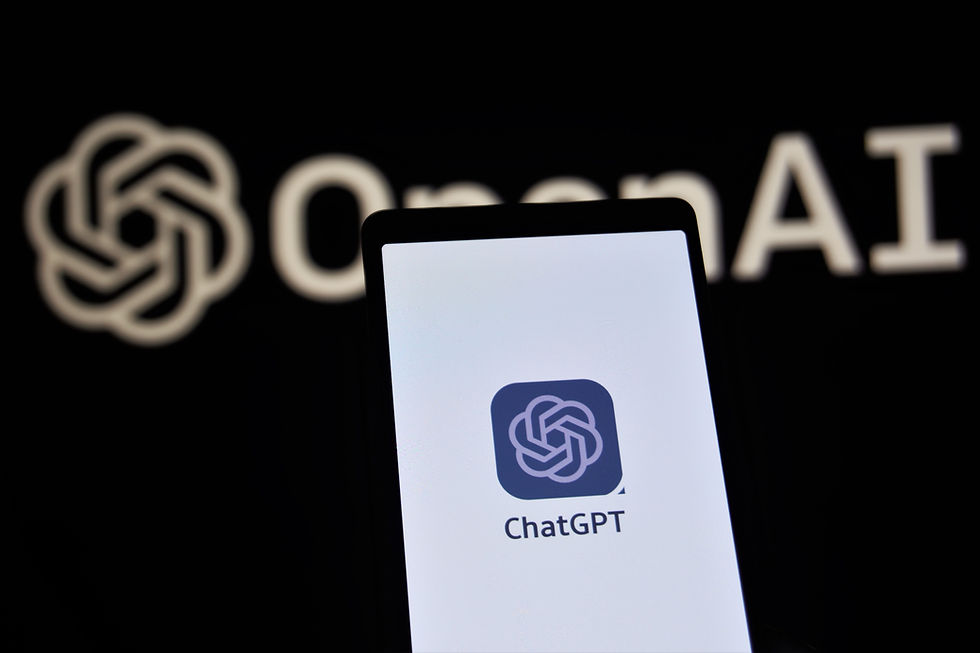Is Artificial Intelligence Part of Your Leadership Plan?
- Melissa Sims
- Nov 2, 2023
- 3 min read
As we stand on the precipice of incredible advancements in Artificial Intelligence, we have a decision to make. Prepare for change and embrace it, or prepare to be left behind.

It feels like everything is constantly changing at break-neck pace and we can do one of two things: embrace it or resist it. I don’t have a crystal ball or any real ability to know how AI will affect us in the long run, but it is very clear that it is definitely going to change the way that we do things - from what we already use it for, to things we never thought possible. Change doesn’t have to be scary. I think what scares most people about AI is the lack of understanding how it actually works, and the fear of the unknown.
Most of us are not computer wizards, and many of us in the ~ahem~ second half of our lives, aren’t even too tech savvy. So of course the rapid advancement of AI, which we have seen in movies like The Terminator and Minority Report, is met with some apprehension. Fears related to AI – loss of control, privacy, and human value – stem from our neural responses to unfamiliar and potentially threatening situations. But the threats of AI aren’t truly any more dangerous from the threats we already face, they are just a bit different.
We may want to stop using futuristic movies as our reference point, however. If you think about it, artificial intelligence has been working around us for quite some time. Google is technically AI. Alexa and Siri are bots. Your wi-fi enabled refrigerator? Or how about your smart watch? Even social media uses AI to determine what you see. All of these things are tech devices that have some component of AI that is already ingrained in our culture. Not to mention the fact that these ‘smart’ devices have made much of our day to day lives more convenient. You are already using artificial intelligence every day, just not quite in the scale it is headed.

The trajectory of AI is aiming for numerous industries, including traditional healthcare, finance, transportation, mental healthcare, manufacturing and more. In traditional healthcare, AI will allow more accurate and faster diagnoses, quicker access to data, and ironically, more personalized care. This is true for mental healthcare as well. The reasoning is that with AI, doctors and therapists will potentially have more time for each patient; they are spending less time researching and going through trial and error.
Therapists are already starting to use AI in sessions with clients, recording the conversations - with permission of course - to allow the AI to help the therapist keep track of what was said, what possible solutions there might be that hadn’t been thought of, and even what the discussion might center around during the next visit. Incredible! Leaders are using AI to train employees in the more mundane portions of their jobs in order to have the time to connect with their employees on a more personal level. Nothing bad about that!
As incredible as AI has the potential to be, navigating this digital landscape is not without challenges. There is no computer or robot that has developed authenticity or empathy. This is something that is not yet advanced in AI. The human element of service industries has been what has traditionally worked to keep customers happy. Additionally, artificial intelligence can't yet judge a complex, high-risk situation, such as suicide assessment and crisis management. Home visitations, as we have seen over the pandemic, are much more effective when not conducted virtually.
There is also the increased need for user data security, privacy, transparency, and informed consent. Personal data requires a high level of protection and confidentiality. This a going to be a time of rapid change and groundbreaking advancements in society. We need “rail guards” to keep AI on track and in line, with oversight and policy. Privacy is a major concern, especially since AI depends on analyzing massive amounts of information. I would highly recommend educating yourself on the potential of artificial intelligence with a cautiously optimistic outlook. Knowledge is power - recognize what AI can and can’t do. It isn’t going to go away, so the more you know, the more informed decisions you can make in how you want it to play a role in your life.
Shifting your mindset to how AI can actually help you, rather than hyper focusing on the dangers, can open up a world of possibility. If AI can help us to live less frantic, busy lives, and allow us to focus more on the things that humanize us, isn't that a good thing?
One of the most important things to remember is that none of this can work without humans. Artificial intelligence is not here to remove you from the equation - it is here to make you better in the equation.




Comments